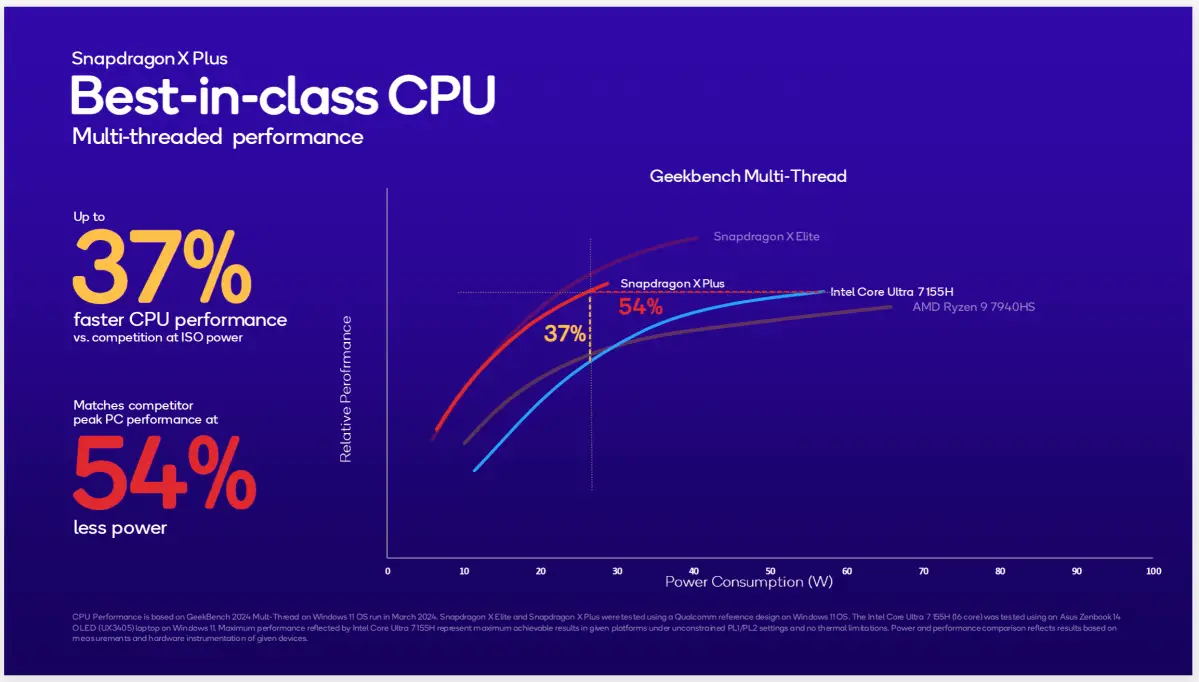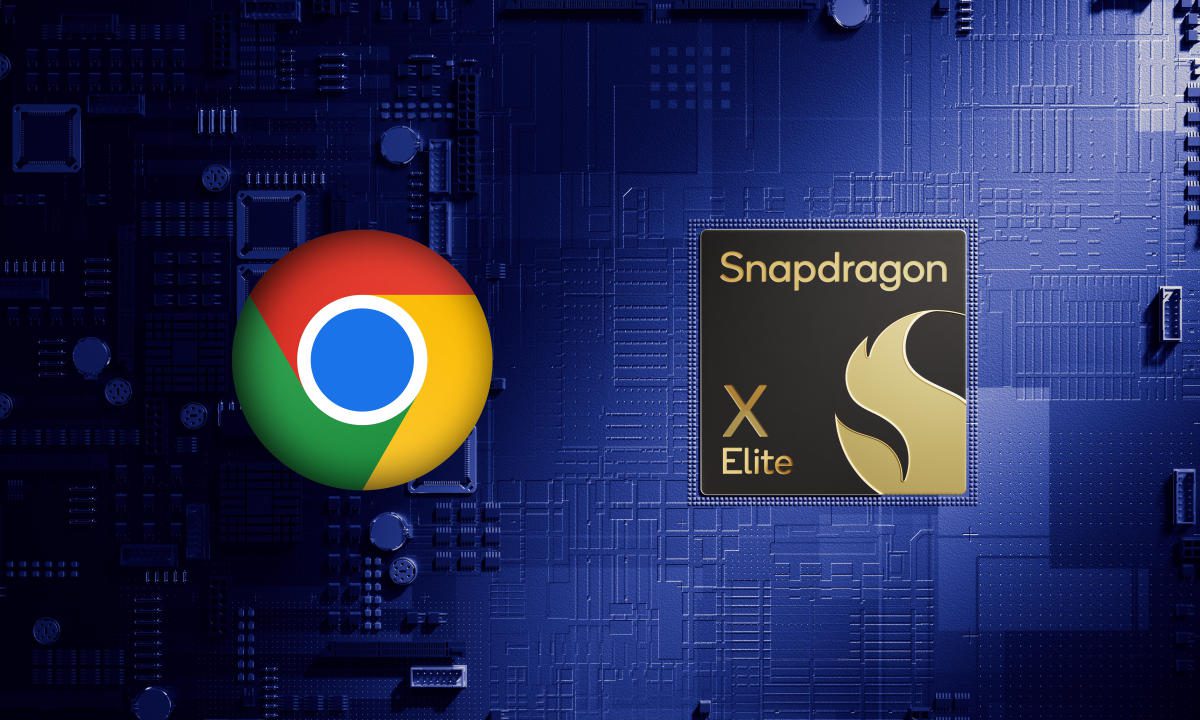The new Snapdragon X chips are faster than an M3, but are we to believe it?
If you follow technology outside of the Apple world, you may have noticed that Qualcomm has been getting a lot of attention lately. Indeed, the company is promoting its upcoming Snapdragon X Plus and Elite chips, which will not be present in laptops until this summer. As part of its marketing, Qualcomm compares the performance […]

If you follow technology outside of the Apple world, you may have noticed that Qualcomm has been getting a lot of attention lately. Indeed, the company is promoting its upcoming Snapdragon X Plus and Elite chips, which will not be present in laptops until this summer. As part of its marketing, Qualcomm compares the performance of its chips to Intel’s (of course), but it also talks about Apple’s latest M3 chip.
According to Qualcomm (via PC World), its Snapdragon X Elite chip is 28% faster and the Snapdragon Which, for chips that will ship about seven months after the M3 launches, leaves an impression – or at least Qualcomm thinks so.
However, these are figures provided by Qualcomm and one major point left out in the M3 comparison is power consumption (not to mention memory and price). Apple takes great pride in the fact that its chips deliver optimal performance while being efficient.
In fact, Qualcomm’s chart below comparing multithreaded performance based on power consumption conspicuously doesn’t include any Apple chips. For a mobile chip, this is a notable exclusion, especially since it challenges Apple every time.
Qualcomm
These are other flags, like Qualcomm not including the M3 Pro or M3 Max. Wouldn’t an X Elite (which has 12 processor cores) versus an M3 Pro or M3 Max be a better comparison? Seems so. Then there’s the whole question of whether Qualcomm’s benchmarks are credible, which, according to the SemiAccurate website, is not the case, and “the numbers they show to the press and are not achievable with the parameters they claim.”
Either way, why should Apple users care what these new Qualcomm chips do? After all, you can’t (officially) run macOS on a laptop – even our sister site, PCWorld, says it “doesn’t care as much about how the X Elite and ‘Apple’. If anything, it just shows how important Apple is in the market, and in the highly competitive world of laptops, you try to find customers wherever you can. Even with a significantly undersized market share, Apple is making a lot of noise with the Mac, and PC makers will do everything they can to convince PC buyers that the devices they sell are just as good.
As for whether the X Plus and X Elite truly outperform the M3, we’ll just have to wait and see when PCWorld tests the chips after they become available this summer. They will probably match in some benchmarks with a few asterisks and caveats. Plus, Apple’s M4 is due later this year, so this comparison will end up being moot.














